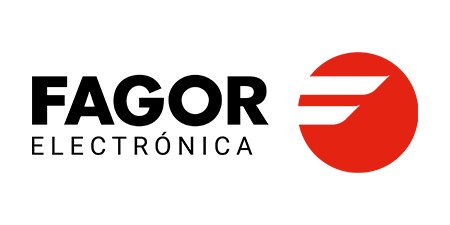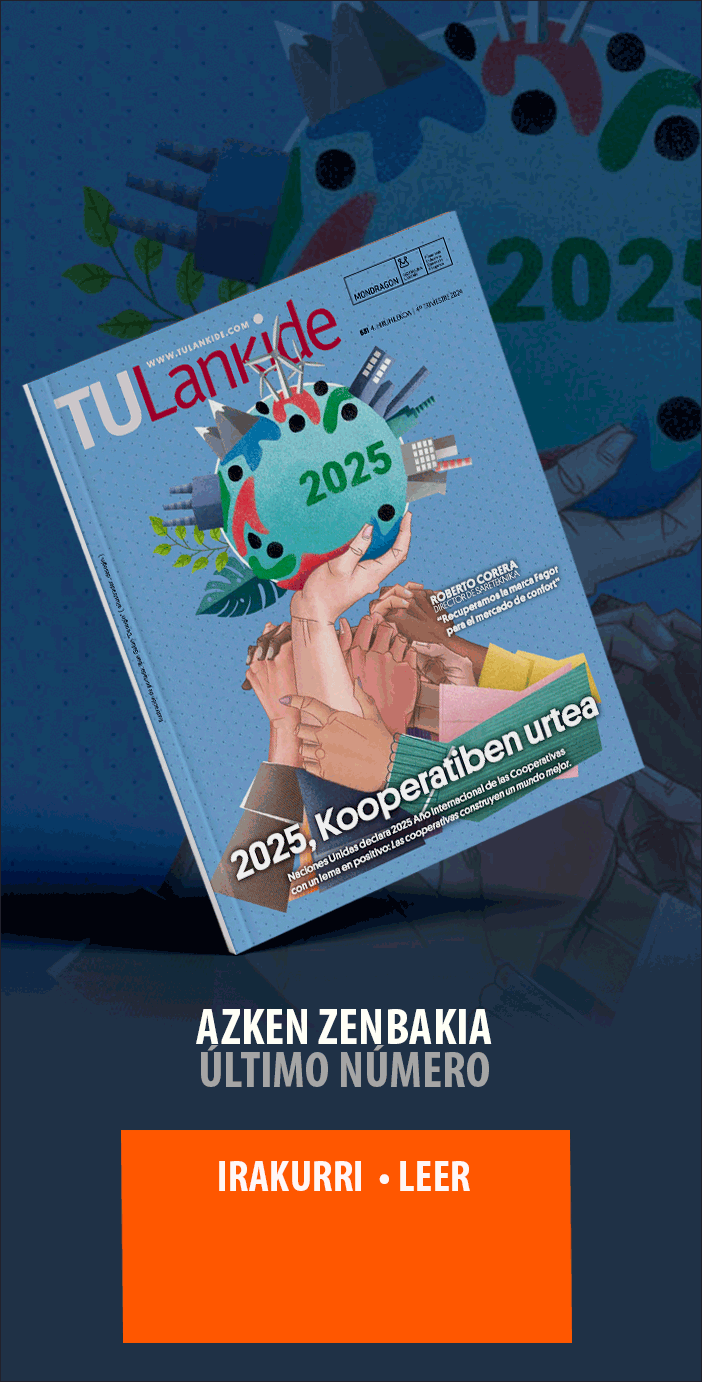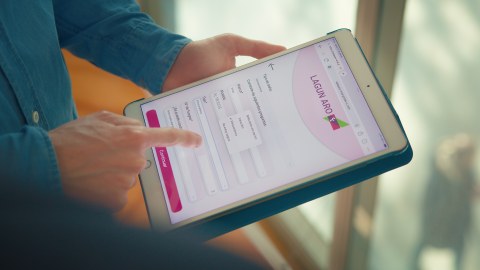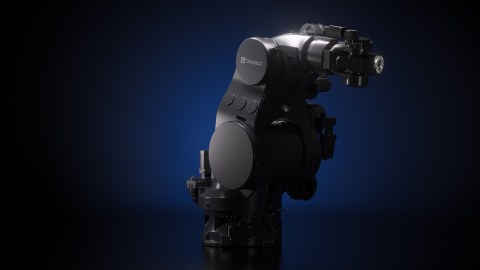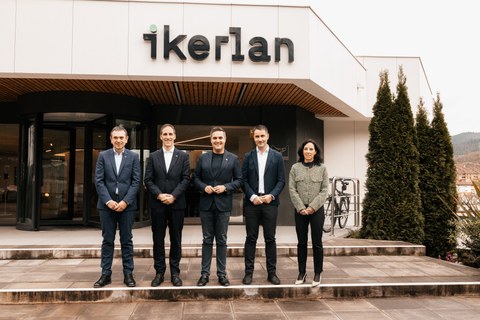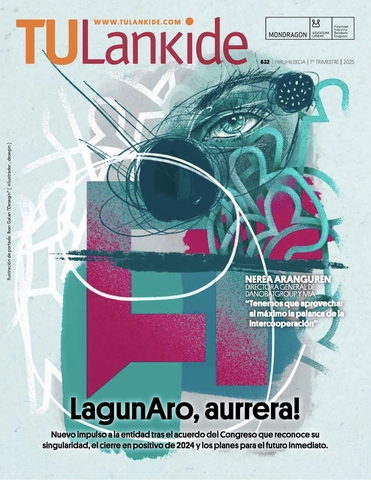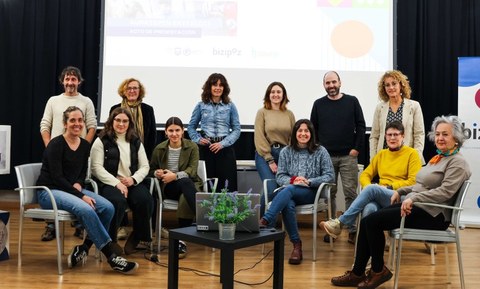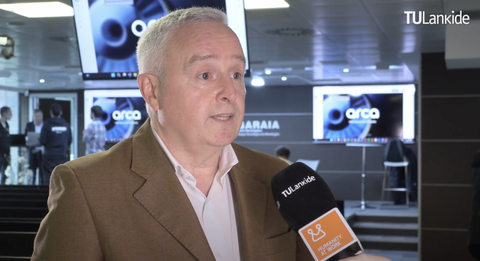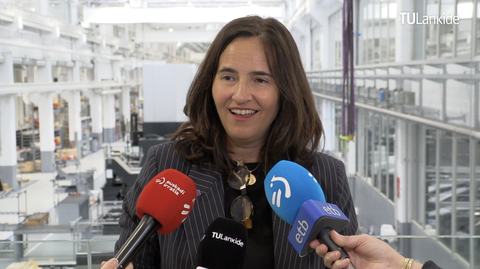Most read
- 1. Danobatgroup sets a new turnover record of €344 M in 2024
- 2. Danobat revolutionizes manufacturing with a new precision robot
- 3. MONDRAGON expands its digital presence with Bluesky
- 4. MONDRAGON leads ASETT, the Social Economy Hub for social transformation
- 5. Orbik Cybersecurity, the first technological start-up to become a co-operative
- 6. Eika acquires Stone Cooker S.L and its innovative 'Suiseki' table to boost growth
‘Customers have expressed their delight at the creation of Fagor Multimedia Solutions and have shown their support for continuing to grow together’
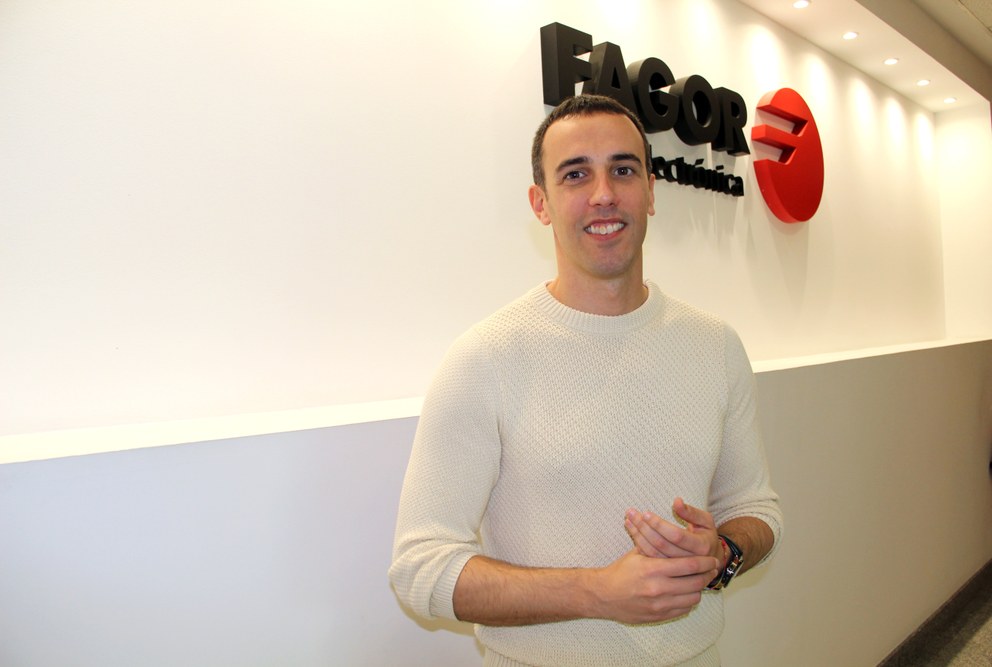
Fagor Multimedia Solutions was officially launched on 15 March, following the acquisition by Fagor Electrónica of Triax Digital Solutions. Kerman Calleja (Arrasate, 1986) is the sales manager for the national market of the new company. Coming from Fagor Electrónica's signal processing business unit, this senior telecommunications engineer is devoting these first few weeks to conveying a clear message to the customer portfolio: that with Fagor Multimedia Solutions they will have a better product catalogue, more competitiveness and better service at their disposal. We talked to him about this new stage and also about the challenges of a sector in constant change. Among them, the importance for professionals of being permanently up to date with the latest technologies, for which Fagor Multimedia Solutions has activated strategic collaborations with professional associations and professional training centres.
With the creation of Fagor Multimedia Solutions, you have gone from being regional sales manager for the northern area of the Signal Processing unit at Fagor Electrónica to sales manager for the national market of Fagor Multimedia Solutions. What does this new venture mean for you?
Fagor Multimedia Solutions represents the opportunity to take on an exciting professional challenge that is different from what I have been doing so far. Among other things, I have to create a cohesive team based on two somewhat different ways of working. But the possibility of creating and growing is always more stimulating, even if it means facing unfamiliar situations.
In this first stage, you have initiated a round of contacts with the entire portfolio of clients, what is the objective and what sensations are you finding?
Mainly to convey a clear message: with Fagor Multimedia Solutions they will have a better product catalogue, more competitiveness and a better service at their disposal. To do this, obviously, we will first have to implement a series of changes, such as the unification of the catalogue or commercial restructuring, which will take time. We are carrying out these processes with the customer in mind, so that they are not traumatic for him. We always have to be close to the customer, but even more so at times like these, to transmit first-hand the steps we are taking. In this sense, customers have told us how happy they are with this process and have shown their support to continue collaborating and growing together.
From your point of view, what can Fagor Multimedia Solutions bring to the market that Fagor Electrónica and Triax Digital Solutions could not bring separately, or that was more complicated?
This union gives us greater size and resources than we had separately and which would be very difficult to reach at present. This larger size and these new resources allow us to serve the market and our clients in a much more personal way, being able to cover the entire national geography with greater precision. It also allows us to develop a greater number of products and in less time. As I mentioned earlier, the market is the main beneficiary of this union and this is reflected in the great interest aroused in the various customers throughout Spain.
Tell us about your team, which has been joined by staff from Triax Digital Solutions, and what challenge it represents for you to lead a larger team and a larger area of action.
Fagor Multimedia Solutions' national sales team is made up of six sales representatives, around 25 agents and myself. In my previous stage I had a smaller team, 10 agents, and a more limited geographical area, the north of the country. Now I have to have a broader vision and measure my actions with the general good in mind and not so much the particular good of a particular area. In this sense, my previous experience in exporting is very useful, as I know how the markets work in their entirety.
The most important thing in this new phase is people. The most important thing is to create a common culture, as the team is made up of people with different ways of working. This has also been transferred to the relationship with customers. From the successes and mistakes made in the past, we must generate, as I said, a common culture in the team when it comes to commercial work: market prospecting, commercial conditions, detection of opportunities...
What objectives do you set for your area for the integration stage and in the medium term?
The first and foremost is to get to know both the market and the team. After completing this phase, we will carry out an analysis to determine how to organise the team in order to best serve customers. At the same time, we will present the final catalogue to customers and, in some cases, we will introduce new products, because the ones they have been using until now may no longer be available. I insist, always looking for a smooth transition. These steps will help us to lay the foundations in the market and to grow. Add to multiply.
What challenges do you think the electronic solutions sector for multimedia and telecommunications infrastructures is facing at the moment?
It is going through a time of change, although it may sound like a cliché. For some years now we have been witnessing a change in consumer habits, accentuated by the pandemic. Streaming and OTT platforms have proliferated, while the audiences of generalist channels have decreased. At the same time, the Internet of Things (IoT) is growing too. All this is pushing data networks, both in homes and in other sectors, to be strengthened to support all these services and provide greater interactivity to the user. This is the case of the hotel sector, which we at Fagor Multimedia Solutions see with great interest and in which we are already present with integral solutions such as Fagor Connect and the Mondragon Hospitality project. As for the residential sector, in new buildings it is easy to create a network capable of these services, but in existing buildings it will be quite a challenge.
You mention the residential sector. What is the situation of the new state regulation on Common Telecommunications Infrastructures (ICT) and what opportunities does it represent for Fagor Multimedia Solutions?
This regulation requires residential blocks to have a series of elements, such as UHF and FM aerials and TV sockets, despite the fact that, as I said, conventional TV consumption has decreased. At the same time, elements such as the IoT node are likely to play a major role in the new regulation. This would enable a connected building in the framework of the smart and sustainable city, creating new opportunities for the installer to enable the connection of different physical elements to the data network. The analysis of the data provided by the node will allow, for example, to optimise electricity consumption costs or personalise the user's content consumption experience. This servitisation and the collection of metrics and data to make them available to the consumer opens up a new path for Fagor Multimedia Solutions, by being able to interact with them. It will no longer be just the sale at the time, the relationship will last over time.
Fagor Multimedia Solutions is already activating collaborations with relevant agents in the sector such as COIT, COITT and Fenitel. What are the aims of these agreements and how will they materialise?
The world of multimedia and telecommunications is closely linked to technology, with constant changes taking place. In order to bring these changes, these improvements, to the end user, it is important that, above all, the installer is aware of them. That is why we collaborate with different associations, schools... in order to have a greater reach and dissemination. The collaborations involve face-to-face training and/or webinars as well as attending different trade fairs to have direct contact with engineers, installers... as well as publication in specialised media.
You have also activated collaborations with vocational training centres, how have the experiences been? Do you detect a gap between training and market needs?
These are very gratifying experiences, because we perceive a great interest on their part in being trained in the latest technologies and market trends. Both teachers and students are aware of the importance of being aligned with the market and that it is an investment for their professional future. With the VET centres we collaborate with, we emphasise that what is important is not only the training they receive at this moment but to continue to do so throughout their professional careers. There is a maxim: what works today may not work tomorrow. That is why training is essential and that is why at FMS we will continue to promote collaborations with vocational training centres, engineering colleges, FENITEL....










